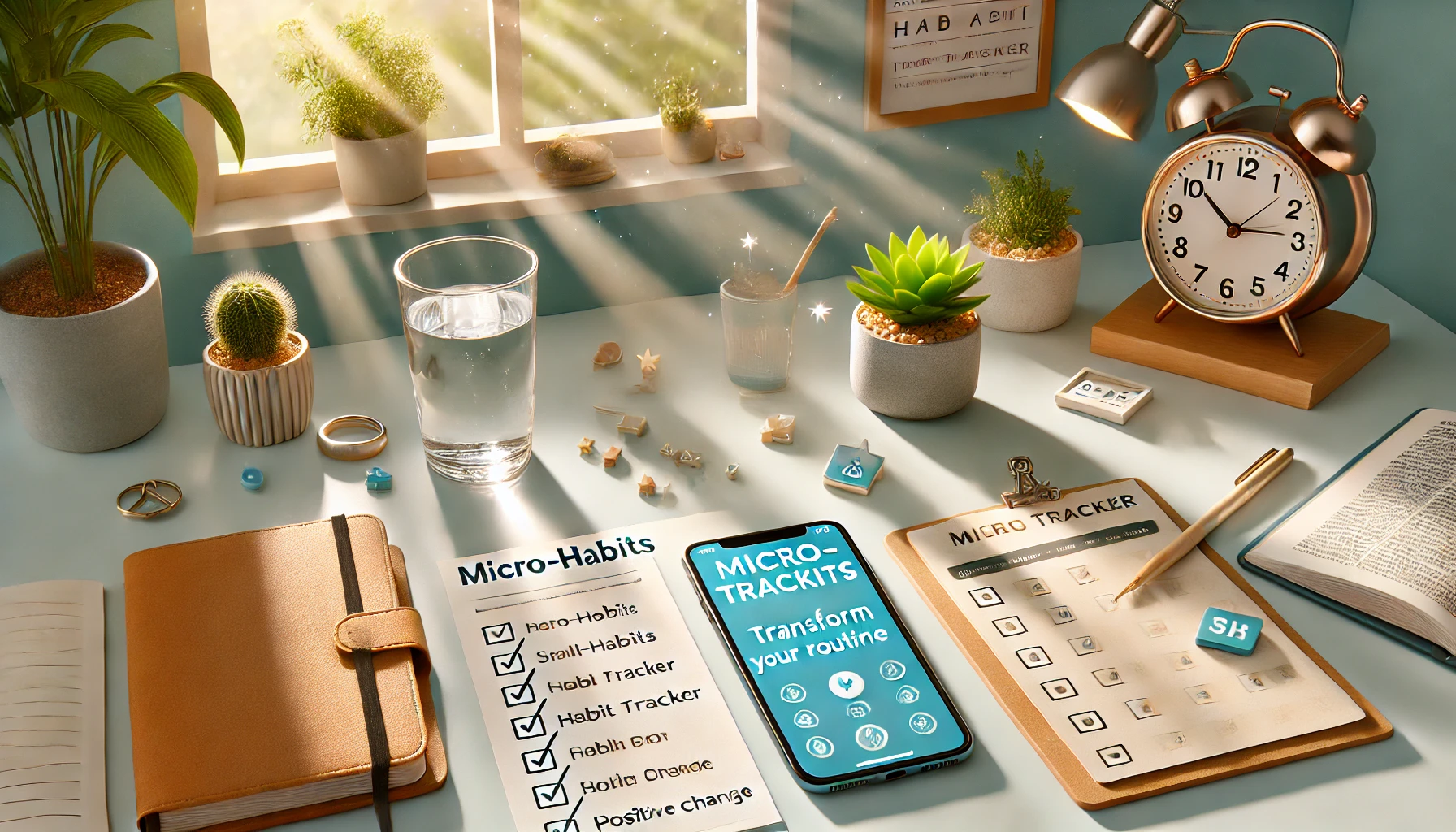The key to lasting change is often hidden in the small, consistent actions we take daily. While ambitious goals like losing weight, mastering a skill, or achieving work-life balance can seem overwhelming, micro-habits offer a simple, manageable alternative. These tiny, actionable habits can create a ripple effect that transforms your routine and leads to significant improvements over time. In this article, we’ll explore the concept of micro-habits, their scientific foundation, practical examples, and a 30-day plan to help you build a better life one small step at a time.
What Are Micro-Habits?
Micro-habits are small, intentional actions that require minimal effort but, when repeated consistently, can lead to long-term positive changes. Unlike larger habits or goals, which can feel daunting, micro-habits are designed to be easy and achievable. For example:
- Drinking a glass of water immediately after waking up.
- Writing one sentence in a journal daily.
- Taking the stairs instead of the elevator once a day.
The simplicity of micro-habits reduces resistance and increases the likelihood of follow-through, making them powerful tools for personal development.
The Science Behind Micro-Habits
Micro-habits are rooted in behavioral psychology and neuroscience. Here’s why they work:
- Activation Energy: According to psychologist B.J. Fogg, reducing the effort required to start a habit makes it easier to sustain. Micro-habits lower the activation energy needed to take action.
- Neuroplasticity: The brain’s ability to rewire itself means that small, repeated actions can create new neural pathways, making the habit feel natural over time.
- The Compound Effect: As Darren Hardy explains in his book The Compound Effect, small, consistent actions accumulate over time, leading to significant results.
- Momentum: Achieving small wins through micro-habits builds confidence and motivation, creating momentum for bigger changes.
Practical Examples of Micro-Habits
Here are some micro-habits you can integrate into different aspects of your life:
Health and Fitness
- Do one push-up every morning.
- Swap one sugary drink for water daily.
- Stretch for 30 seconds before bed.
Productivity
- Write down one priority task for the day each morning.
- Spend two minutes decluttering your workspace.
- Check emails at a designated time instead of constantly.
Personal Development
- Read one paragraph of a book each day.
- Write one sentence of gratitude in a journal.
- Practice deep breathing for 10 seconds.
Relationships
- Send a quick message to one friend or family member daily.
- Compliment someone at work or home.
- Spend five minutes of uninterrupted time with a loved one.
Financial Habits
- Save one dollar a day.
- Spend one minute reviewing your daily expenses.
- Set a 30-second timer to reconsider impulse purchases.
A 30-Day Micro-Habit Plan
Transforming your routine doesn’t happen overnight, but 30 days is often enough to establish new patterns. Here’s a simple plan to get started:
Week 1: Focus on Starting
Choose three micro-habits to implement. Start with simple actions that take less than a minute to complete. For example:
- Drink a glass of water upon waking.
- Write down one thing you’re grateful for.
- Stretch for 30 seconds before bed.
Week 2: Build Consistency
Keep practicing the habits from Week 1 and add two more. By now, the initial habits should feel more natural. New habits could include:
- Spend two minutes tidying your desk each day.
- Send a quick message to check in on a friend.
Week 3: Expand Gradually
With a solid foundation, introduce slightly more challenging micro-habits. For instance:
- Replace one unhealthy snack with a piece of fruit.
- Write one paragraph in a journal instead of one sentence.
- Do five push-ups each morning instead of one.
Week 4: Reflect and Optimize
Reflect on your progress and make adjustments. Celebrate small wins and consider adding new habits:
- Practice mindful breathing for one minute daily.
- Read one page of a book before bed.
- Save $5 instead of $1 each day.
Tips for Success
- Anchor Habits to Existing Routines: Attach micro-habits to activities you already do. For example, stretch after brushing your teeth or review your expenses after dinner.
- Track Your Progress: Use a habit tracker app or a simple checklist to monitor consistency. Seeing your progress can boost motivation.
- Start Small: Resist the temptation to overcommit. Focus on micro-habits that take less than two minutes.
- Celebrate Small Wins: Acknowledge and reward yourself for completing habits, even if they seem minor. Positive reinforcement strengthens motivation.
- Be Patient: Habits take time to form. If you miss a day, don’t give up—just start again the next day.
The Power of Micro-Habits
Micro-habits may seem insignificant, but their cumulative impact is profound. By starting small, you create a foundation for bigger changes, whether it’s improving your health, boosting productivity, or enhancing relationships. Over time, these tiny actions compound into meaningful transformations, proving that small steps truly lead to giant leaps.
Conclusion
Transforming your routine doesn’t require drastic changes or overwhelming effort. By embracing micro-habits, you can create a sustainable path to personal growth and success. In just 30 days, small, consistent actions can lead to remarkable improvements in your life. Start today with one tiny habit and watch how it ripples into a better tomorrow.
